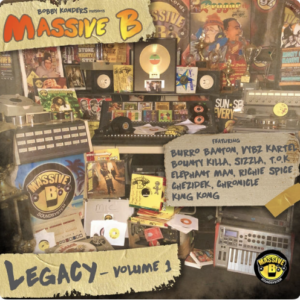FBI To End Civil Rights-era Cold Cases

The FBI has announced that they are close to ending Civil Rights-era cold cases. The cases include murder cases in which there are no statute of limitations. So far the FBI have investigating 111 cases involving 124 deaths but are close to the end of their cold case list. Read more after the jump.
Julie1205
Every time we think we’ve seen the last of the trials for civil rights-era atrocities, it seems, prosecutors will parade some stooped, white-haired defendant before the cameras in shackles.
Byron de la Beckwith. Sam Bowers. Bobby Frank Cherry. Edgar Ray Killen. James Ford Seale.
There is no statute of limitations on murder, and age and infirmity offer no refuge for the guilty, these cases have proved. But if justice has an enemy, it is time. And now, officials are conceding that the spectacle of juries passing judgment on such aging killers is just about past.
The Department of Justice, under its 5-year-old “Cold Case Initiative” and the 2007 Emmett Till Unsolved Civil Rights Crime Act, has combed through that dark period of American history, seeking any cases that could still be prosecuted. Isolating 111 incidents involving 124 deaths, investigators have sought to determine whether those who died were victims of racially motivated crimes – and then whether there’s anyone left to charge.
In about two-thirds of those cases, FBI agents have hand-delivered letters to next of kin, informing them that the government had taken things as far as they could.
In some cases, all of the suspects are dead; in others, suspect individuals have been acquitted in the past and cannot legally be retried. In a few, the agency can find no evidence that a crime was racially motivated – or even that the death resulted from foul play.
“We regret to inform you that we are unable to proceed further with a federal criminal investigation of this matter …, ” a DOJ official wrote to the daughter of Harry and Harriette Moore, who died following the dynamiting of their Florida home six decades ago. “Please accept our sincere condolences on the loss of your parents.”
Roughly three dozen of the reviewed investigations – including the oldest, the Florida lynching of Claude Neal in 1934 – remain open.
Although DOJ reported to Congress recently that some state prosecutions are “potentially viable,” the passage of time and other “impediments” make the prospect of trials unlikely.
“Few, if any, of these cases will be prosecuted,” the agency acknowledged.
Civil rights activist Alvin Sykes, who did as much as anyone to push for this effort, is disappointed.
“I said, `The American people won’t believe you made a full-faith effort if there wasn’t a manhunt,'” says the head of the Emmett Till Justice Campaign, named for the 14-year-old black boy whose lynching in Mississippi helped spark the modern civil rights movement. “They made some efforts, but they didn’t make an outreach, a manhunt.”
But Mark Potok of the Southern Poverty Law Center says it was clear from the outset that “most of the cases that were solvable have been solved.” Even without new prosecutions, he says, a page has been turned.
“I think there is some utility in closing cases, if for no better reason than to assure the families that what can be done at this late date has been done,” says Potok, director of the Montgomery, Ala.-based organization’s Intelligence Project. “These are people who have been completely left out of the justice process for many decades. So the government does owe them a debt of attention. So I wouldn’t say that it was a total waste of taxpayer money.”
During the darkest days of the civil rights struggle, when all-white juries acquitted obvious perpetrators or Southern state officials flat refused to prosecute racial killings, families could still turn to the federal government for some modicum of justice. A few years in prison for a federal civil rights violation was better than no punishment at all.
Decades later, when prosecutors in the “new South” began reopening some of those old cases, the Department of Justice again stepped forward. Although the statutes of limitations on most federal crimes had long since run out, the FBI’s files were filled with yellowed statements from witnesses or informants, some long dead, that might help locals build a case.
These collaborations – combined with the work of some dogged reporters, activists and persistent family members – produced some stunning convictions in the 1990s and the first decade of the 21st century. The most recent was the June 2007 conviction of Seale, a reputed former Ku Klux Klansman whom many had believed long dead.
A federal jury in Jackson, Miss., convicted Seale, then 72, of kidnapping and conspiracy in the torture and drowning of two black youths in 1964. He was sentenced to three life terms and died Aug. 2 in an Indiana prison.
The bureau also “lent its assistance” in the case of former Alabama state trooper James Fowler, who last year pleaded guilty to manslaughter in the Feb. 18, 1965, shooting death of Jimmie Lee Jackson following a protest march in Marion, Ala. Fowler, 77, was sentenced to six months in jail.
After Killen was convicted of manslaughter in 2005 in the so-called “Mississippi Burning” case, activists pushed for charges against a list of what they said were viable prosecution targets remaining; this case of three civil rights workers’ 1964 murder remains technically open. “I HOPE we’re not done,” says John Gibson, executive director of the Arkansas Delta Truth and Justice Center.
On the still-open list are a couple of cases that fall into a peculiar category: Ones in which someone was acquitted by an all-white jury but has now admitted to the killing. So the possibility of vigilantism is among considerations in deciding when to close such cases, says FBI Special Agent Cynthia Deitle, who until recently was in charge of the cold-case effort.
“How does the Department of Justice write a letter that SAYS that?” she asks. “The person that killed your father is very much alive, still lives in the hometown where you live, and admitted doing it … and there’s nothing that we can do or the state can do.”
In some cases, like the one against Seale, the Department of Justice used non-civil rights statutes – such as kidnapping resulting in death, or involving killings on federal lands – to overcome the statute of limitations challenge.
But many of those closed seemed already hopelessly cold when the initiative began.
The FBI sent an 8,000-page file to Mississippi officials on the August 1955 slaying of Till, the Chicago boy who was tortured and shot for whistling at a white woman. Photos of Till’s mangled corpse lying in an open coffin outraged the nation and galvanized civil rights activists.
The admitted killers were long dead, but some thought a case could have been made against others who might have played a role before or after the killing. A local grand jury failed to return any indictments, and the case was officially closed in December 2007.
Although the Till act does not require it, the FBI has provided detailed reports to the next of kin in cases that were being closed, “in an effort to nonetheless bring some sense of closure to the family members of these victims.” Despite a media campaign, the agency has managed to locate relatives for only 95 of the 124 victims.
The Associated Press obtained redacted copies of several letters through the Freedom of Information Act. Survivors of some victims agreed to share their letters with AP reporters.
Some families are satisfied that the FBI had done all it could do to bring their loved ones’ killers to justice. Others, who had allowed themselves to hope, feel violated all over again.
James Ware never expected much from the reopening of his brother Virgil’s case.
On Sept. 15, 1963, the two were on their way home from a junkyard outside Birmingham, Ala. They’d just started a new paper route and were looking for parts to cobble together a second bicycle, with dreams of earning enough to buy themselves a used car.
That morning, just a few miles away, four black girls had died when a KKK bomb exploded at the Sixteenth Street Baptist Church. As they flew down the Docena-Sandusky Road, the Ware brothers – 16-year-old James pedaling, Virgil, 13, balanced on the handlebars – had not heard of the bombing and had no idea how dangerous it was to be out that day.
Michael Farley and Larry Joe Sims, two 16-year-old white boys, were riding a motorbike down the same road, a miniature Confederate flag flapping behind them, when they came across two friends who said they’d seen a couple of black kids throwing rocks up the way. Farley reportedly opened his jacket to reveal a recently purchased .22-caliber, pearl-handled pistol, saying, “We’ll take care of them.”
As they approached the two black boys, Farley handed the pistol to Sims. Sims fired twice, and Virgil fell.
At 64, James Ware’s memory of that day is still vivid.
“Ware,” Virgil gasped as his older brother leaned over him. “I’m shot.”
“No, you’re not,” James recalls saying. “Get up.” But his brother, wounded in the cheek and chest, never moved or spoke again.
Farley and Sims were arrested and charged with first-degree murder. Sims, an Eagle Scout, claimed that his eyes were closed when he shot, and that he was only trying to scare the other boys. After a jury convicted Sims of second-degree manslaughter, Farley pleaded guilty to the same charge. Each was sentenced to seven months, suspended.
James Ware received his letter in late March.
Despite the light sentences, the two men could not be retried in state court (“jeopardy has attached”), and a five-year statute of limitations precluded federal civil rights charges against anyone in the case, the letter said.
James Ware never accepted that the shooting was an accident. But he had long ago accepted the apologies of Farley and Sims, and had considered the case closed.
If nothing else, the renewed investigation rescued Virgil from obscurity, he says. “I don’t see what else could be done. He got full recognition. That’s what I wanted for him – to be known about.”
But to some families who have waited decades for justice, the FBI’s letters have brought no peace.
When lounge manager Jasper Greenwood went missing in Vicksburg, Miss., on June 21, 1964, his family immediately suspected foul play. The FBI was told that Greenwood was allegedly last seen in the company of two white men.
By the time his body was found eight days later on a road outside Vicksburg, it was badly decomposed. A coroner’s inquest failed to identify a cause of death.
Linda Galvin, Greenwood’s granddaughter, says it was a cover-up. “The black funeral home told me that he was castrated and he had what looked to be a stab wound in his throat area,” Galvin told the AP. “None of that showed up in the FBI report.”
But according to the FBI’s letter to the family, agents had interviewed funeral home director W.H. Jefferson in 1964, and he “denied that he thought the hole had been caused by anything other than `nature’ …” The bureau obtained a copy of the Vicksburg Police Department’s report, which concluded that Greenwood had suffered a fatal heart attack while meeting with a married woman on the local “lover’s lane.”
Family members have suggested that Greenwood might have been targeted for his close association with assassinated NAACP activist Medgar Evers. But the letter noted that Charles Evers, then the NAACP’s Mississippi field director, told the FBI that Greenwood “was not active in voter registration efforts or the civil rights movement.”
None of that satisfies Greenwood’s daughter, Rosemary Domino of Jacksonville, Fla. “If they say it’s closed, then it’s closed,” she says. “But the FBI can be wrong.”
The families of Adlena Hamlett and Birdia Keglar also have lingering doubts.
Hamlett, 78, was a retired schoolteacher and one of the first blacks to register to vote in Tallahatchie County, Miss. Keglar, 57, was an organizer for the NAACP who had sued the local sheriff after she was prevented from paying her poll tax. Each had testified before a congressional commission in support of the Voting Rights Act of 1965.
The women died on Jan. 11, 1966, as they were returning home from a secret meeting in Jackson with then-U.S. Sen. Robert F. Kennedy. For years, relatives and certain researchers have insisted that the car was run off the road by the Klan.
Keglar’s granddaughter, Nina Zachery, 76, wept as she described seeing the body at the funeral home. Keglar appeared to have been decapitated.
Zachery was told that the driver of the car, Grafton Gray, supposedly played dead and could hear the women being tortured. “When my family members would try to talk to him, he would not,” she recently told the AP.
The FBI tracked down the wreck’s lone survivor, backseat passenger Richard Simpson, a white activist from Massachusetts, who confirmed the basic details contained in a Mississippi Highway Patrol report, the bureau’s letter said. The accident report said a car on the wrong side of the road struck the activists’ car head-on.
“The impact caused the hood of (the) car to break loose and move through the windshield, fatally injuring” Hamlett and Keglar, the FBI determined.
On a gloriously sunny spring day this year, two FBI agents appeared at 79-year-old Lila Hamlett’s door in Kansas City, Mo., to deliver their letter.
Dated May 27, it said there was “insufficient evidence to indicate that a racially motivated homicide occurred.”
The agents asked if Hamlett had any questions. She had lots, but she didn’t bother asking. If the letter was intended to provide closure, it failed.
“It’s just an unsolved case,” she says. “Whatever it was, it’ll never be revealed now. And I just have to accept it.”
Some families’ refusal to accept what seems like solid evidence is understandable to Patricia A. Turner, a professor of African-American studies and the vice provost for undergraduate studies at the University of California, Davis.
The black community hasn’t forgotten longtime FBI Director J. Edgar Hoover’s reluctance to investigate civil rights violence, or his attempts to discredit Martin Luther King Jr., she says. And when you consider episodes such as the Tuskegee experiments, in which scientists allowed black men with syphilis to go untreated so they could study the effects, it’s easy to believe the government is capable of doing – and covering up – just about anything, she says.
“And certainly anything related to something as major as a death, the family members are going to have come up with a narrative, a story that fits their understanding of the world and who has power in it – and who doesn’t have power in it.” says Turner, author of the 1994 book, “I Heard It Through the Grapevine: Rumor in African-American Culture.”
Activists were elated when the initiative was launched, reviewing the old cases. But much of that joy has since faded.
Lawmakers had promised annual funding over a 10-year span: $10 million per year to the FBI, $2 million for state and local law enforcement, and more. But only a fraction has been appropriated.
“It hasn’t lived up to its potential,” says Sykes. “I’m disappointed.”
So is Juanita Evangeline Moore.
Her father, Harry T. Moore, organized the NAACP’s Brevard County, Fla., branch in 1934 and served as the organization’s first statewide executive secretary. He and his wife taught school in the area south of Cape Canaveral until their activism got them fired.
On Christmas Day 1951 – which was also the couple’s 25th wedding anniversary – a bomb went off beneath the floor in their bedroom. The blast collapsed the front end of their modest frame house; their daughter Annie Rosalea, who was in the next room, found them lying at the bottom of a crater, covered in debris.
Harry Moore died on the way to the hospital. His wife died nine days later.
The FBI investigated at the time, but no one was charged. A state investigation launched in 1991 turned up little new evidence. In 2004, Florida authorities reopened the case. A 20-month investigation produced the names of four likely suspects – all by then dead.
The FBI closed its second investigation into the case in mid-July. In a letter to Moore, Paige M. Fitzgerald, deputy chief in charge of the cold case initiative, reported that four dead men already identified were “the only subjects credibly linked to the bombing.”
“Therefore, we have no choice but to close our investigation,” Fitzgerald concluded.
Moore, who believes the FBI knew about some of these people years ago, says, “They have waited too long and they have bungled the investigations.”
She chokes up as she recalls returning home from Washington, D.C., and standing at the foot of her dying mother’s bed.
“I hate all white people,” she spat. Harriette Moore chided her.
“She said, `Evangeline. You can’t do that. It would make you ugly, and you’ve always been my beautiful daughter. I don’t want to ever hear you say that again.'”
Moore, 81, says her faith has allowed her let go of that hatred of the killers who went unpunished.
“God,” she says, “has already judged them.”
HP
THE BLOG
HOT 97
LINKS
MUSIC
Bobby Konders Presents: Massive B Legacy, Vol. 1
Release Date: November 19th, 2018 Bobby Konders Presents: Massive B Legacy – Volume 1 is now available and includes ten features on ten tracks. Burro Banton, Vybez Kartel, Bounty Killa, Sizzla, T.O.K., Elephantman, Richie Spice, Chezidek, Chronicle, and King Kong. You can listen on Apple Music, Spotify, and Tidal.
#MusicStillMatters New Music: A Boogie – Nice For What
A boogie gave fans a snippet of this one via his instagram. Finally after all the request to drop the full version from fans – here it is. Check A Boogie’s version of “Nice For What.” Listen below.
#MusicStillMatters New Music: Dave East – Imagine
Dave East is set to release the 2nd installment of his “Karma” series, next week on July 27. Check out this new one off the tape called “Imagine.” Listen below.
#MusicStillMatters New Music: 070 Shake – Accusations
The G.O.O.D. Music rookie 070 Shake releases a new one called “Accusations.” Listen below.
(Video) Tony James – Sweat Slow
Toronto’s very own Tony James has released his major label debut single and visual for “Sweat Slow.” Tony says this one “Is about the one that got away, so we wanted to show the beautiful, happy women representing the ex-girlfriends of the men who took them for granted.” Look out for more from Tony this…
#MusicStillMatters New Music: Childish Gambino – Summertime Magic / Feels Like Summer
Childish Gambino aka Donald Glover follows up his video/song “This Is America” with not only one, but two records for the summer. The “Atlanta” creator tweeted “summer pack,” with a link to his songs, “Summertime Magic” and “Feels Like Summer.”
#MusicStillMatters Stream: Meek Mill – Legends Of The Summer
Meek Mill decided to treat his fans to new music when he dropped a new EP called “Legends of the Summer.” the 4-track tape features Swizz Beatz, Jeremih and PNB Rock. Stream below.
#MusicStillMatters Stream: Future – Beast Mode 2
Future links up with Zaytoven for the follow up to 2015’s “Beast Mode” titled “Beast Mode 2” which includes 9 tracks with a feature from Young Scooter. Listen below.
#MusicStillMatters New Music: T-Pain – Boo’d Up (Remix)
First it was Nicki Minaj and Quavo who put their touch on the track to mixed reviews. Then Fabolous laid his verse on the hit single. Now, T-Pain decided to give his take on the track. Listen below.
TECH TALK
We Know What YG’s Next Purchase Will Be: This ALL RED Special Edition iPhone!
An all red iPhone is on the way – I’m sure much to the delight of the Bloods. LOL! A special edition red version of the iPhone 7 and 7 Plus have been introduced, in celebration of the 10-year anniversary of Apple’s partnership with HIV/AIDS organization, (Red).
(Video) Apple Unveils New Spaceship Campus Called “Apple Park”
One of Steve Jobs projects he left behind before his untimely death from pancreatic cancer, was the Apple spaceship campus. Take a look.
(Video) Lil Wayne Featured In EA’s ‘Need For Speed: No Limits’ Game
While we still have no Carter 5 in sight, we can at least get SOMETHING from Lil Wayne in the form of EA’s new mobile game, Need For Speed: No Limits. Players can drive as Weezy in the game, and both his voice and likeness are there for fans to enjoy. Tune is also working…
Sprint Purchases 33% Stake In Jay-Z’s Tidal
Power moves on power moves on top of power moves. Hov just struck a big deal for Tidal and the artists who have stake in the company as well, through Sprint.
(Video) Travis Scott Previews New Heat On Snapchat
Looks like Travis Scott is cooking something up…Astroworld this year?
Azealia Banks Has Been Banned From Facebook
AzealiaBanksVEVO Well, that took longer than expected.
(Video + Photo) Ariana Grande Got Her Own Character In “Final Fantasy: Brave Exvius” Game
Soon you’ll be able to play as Ariana in Final Fantasy and she broke the news to her fans yesterday.
SoundCloud Makes A Major Update That MANY People Will Be Happy About!
When SoundCloud first came out, it quickly became a hub for DJs, uploading their mixes and gaining a decent following because of it. However, as labels became more hip to the new site, they began issuing copyright infringements left to right, and DJs began leaving the streaming website in droves – especially because their accounts…
MARISA EXPLAINS IT ALL
Marisa Mendez x Jamal x Tunisia – Marisa Explains It All [Episode 16: “Holiday Hangover”]
We’ve made it to episode 16 of my podcast, Marisa Explains It All, and I finally decided to share it with you guys here. LOL! On this episode, we pre-gamed before the Ebro In The Morning holiday party…and uh, yeah. Drunk talk and feelings were at an all time high. Our music picks are as…
Behind The Lyrics: Lil Wayne Admits To Botched Suicide Attempt As A Child On “London Roads”
Lil Wayne has long recounted a story of “accidentally” shooting himself when he was 12, playing with a 9 mm handgun. Thankfully, an off-duty cop was around to help young Tune, and he survived to become the rap star he is today. Apparently, that wasn’t the whole story, though! On “London Roads”, a song from…
(Video) Machine Gun Kelly Finally Opens Up About Amber Rose
Machine Gun Kelly is one of my favorite artists and has been a good friend of mine for years now, so it was double the blessing to make my Hot 97 interview debut with him on Ebro In The Morning today! The Bad Boy rapper stopped by to discuss his new single and its powerful…
Behind The Lyrics: Wiz Khalifa Comes For Amber’s Neck On “For Everybody”
Last night, Juicy J dropped his Wiz Khalifa-assisted single “For Everybody,” and boy did Wiz have some choice words for his ex Amber Rose on the track! And to drive the point home, they included a photo of themselves at his wedding to Amber as the song’s artwork.
(Video) Honey Cocaine Plays A Hilarious Game Of Taboo
Toronto-bred raptress Honey Cocaine made her rounds at Hot 97 a few weeks back, promoting her latest mixtape Like A Drug, and its 2 singles, “Gwola” featuring Kid Ink and Maino, and “None Of My Business” with Kirko Bangz and Constantine. Following her dope interview with Jen From BK for Jen’s “Ladies First” segment, I…
Interview: Machine Gun Kelly On Debut Film: “I hope that it kind of strikes a social issue…” [PLUS Details On Sophomore Album!]
This Friday, Colson ‘MGK‘ Baker will make his big-screen debut, starring as Kid Culprit in the romantic drama, Beyond The Lights. Since his 2012 Bad Boy/Interscope debut Lace Up and his breakout single “Wild Boy,” Kells has toured the world and shot not only Beyond The Lights, but two more as-of-yet unreleased films as well.…
Elijah Blake Gives 7 Tips How NOT To Act Around A Celeb, Plus Talks New EP, His First Big Check & More!
Singer/songwriter Elijah Blake has worked with a majority of the biggest names in the music business from Rihanna, Justin Bieber, Usher, Mary J and more, either having written for them or being featured on their songs. Now with his recently released Drift EP (available on iTunes here,) the talented Def Jam signee sat down to…
IFWT Exclusive: Maino Gives Us The REAL Story Of What Happened With The Porn Star!
Maino is currently being sought out by the NYPD for questioning, after an adult film star accused him of assaulting her inside of his truck after they partied at Griffin on Monday night with Drake, Ashanti, JR Smith and more. According to the police report filed by the porn star, Mellanie Monroe, “he started punching…
Mila J Reveals The Real Deal Between Her & A Rumored Beau, Plus Talks New EP, Diet/Workout, Her Mains & More!
Gorgeous singer/songwriter/dancer Mila J finally released her debut EP M.I.L.A. (Made In L.A.) yesterday, after years of trying out girl groups, various solo ventures, random day jobs and the like. She’s finally found her niche now though, and has seen success with her latest singles, “Smoke, Drink, Break-Up” and the Ty Dolla $ign-assisted, “My Main.”…


























